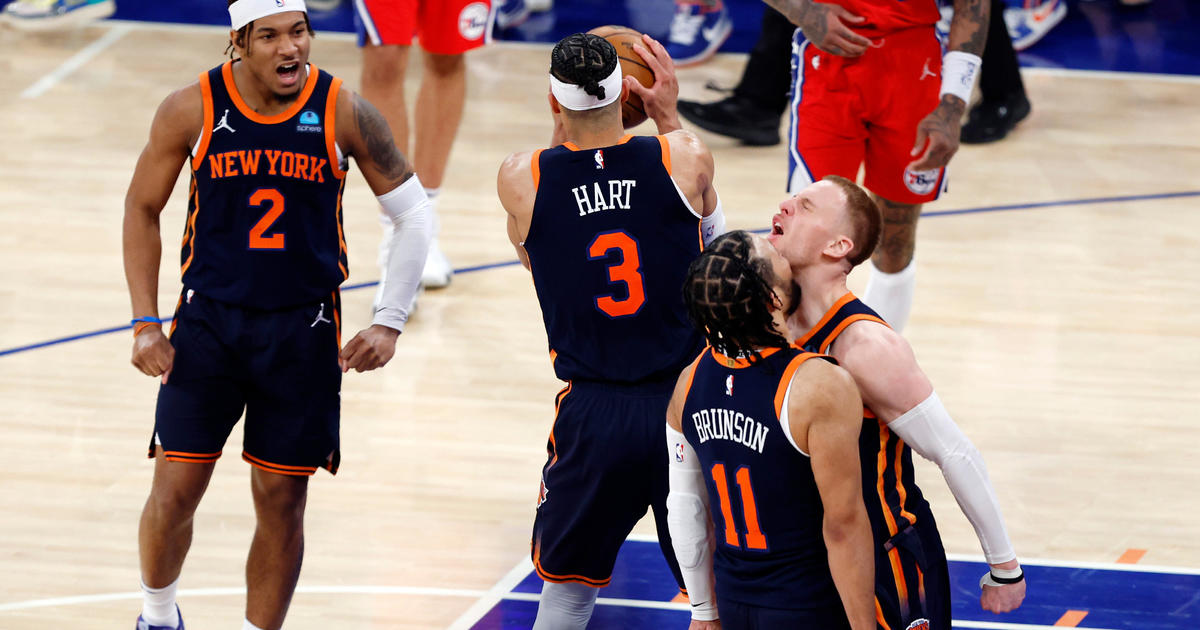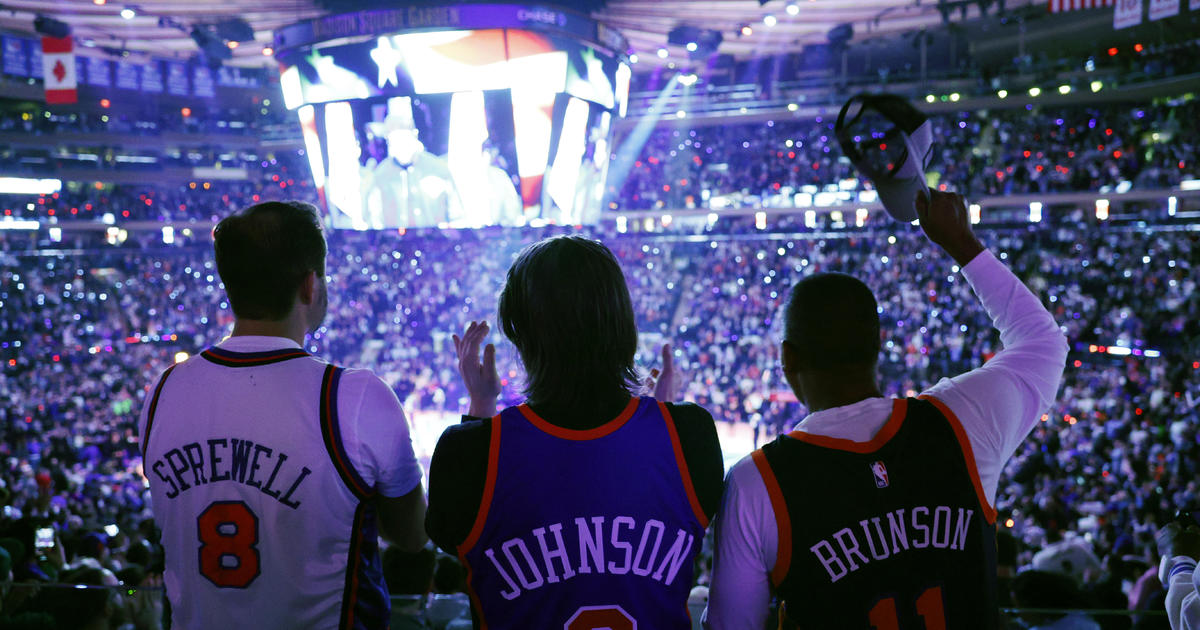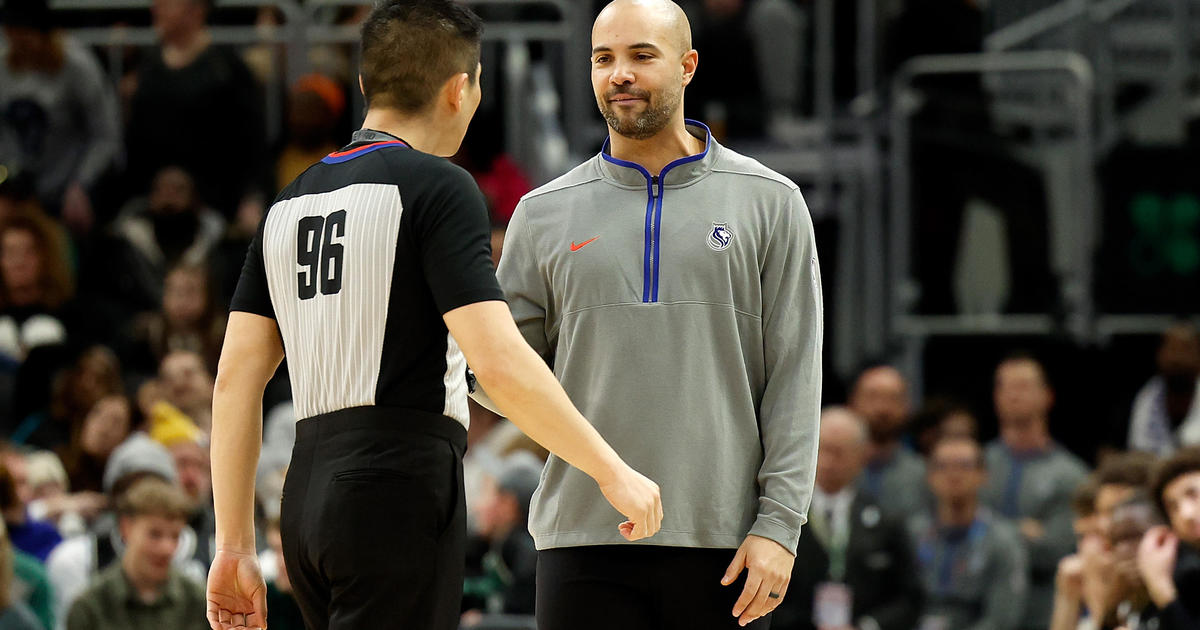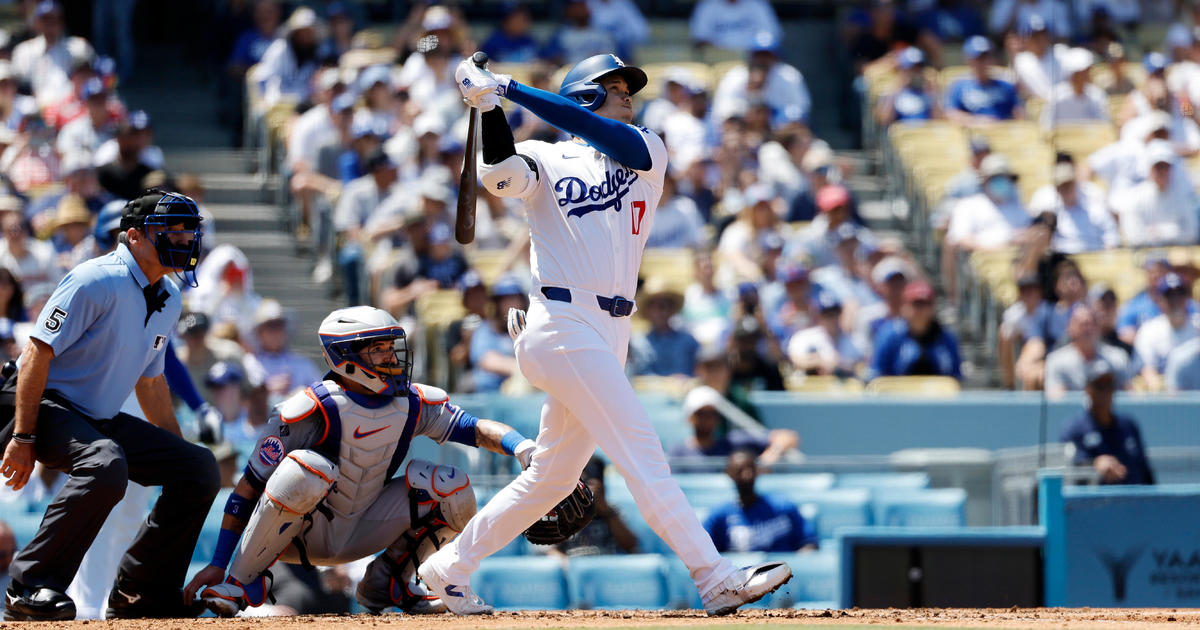Schmeelk: Knicks Made A Mistake Trading For Derrick Rose
By John Schmeelk
» More Columns
On Wednesday, the Knicks traded for a great name: Derrick Rose. He won the NBA MVP ... in 2011. He made three All-Star games, but the most recent one was in ... 2012. The last time he made an All-NBA team was … 2011. The last time he played more than 66 games was … 2011.
Rose might still have a great recognizable name, but he is no longer a great player. Not even close. He is also a player with one of the worst injury histories in the NBA and on the last year of his contract. For all those reasons, the Knicks made a big mistake trading for him.
Last year, Rose was not a very good basketball player. He shot under 43 percent while scoring less than 17 points per game. He averaged under five assists and shot a pathetic 29 percent from 3-point range. Those numbers are about in line with what Rose did in his last three seasons while fighting injuries. He is a volume shooter.
In fairness to Rose, he got better last year after his orbital injury healed, which also affected his vision in one eye. From Jan. 1 to the end of the season, he shot 45 percent from the field and averaged just under 18 points and four and a half assists. Those are far more palatable numbers, but still far from anything elite or what he did during his MVP-caliber seasons.
MORE: Report: Knicks' Jackson Told Rose He's Targeting Durant In Free Agency
In terms of PER (John Hollinger's advanced metric that measures overall play), Rose finished 44th among point guards last year, behind Brandon Jennings and Jeremy Lin. He finished only slightly ahead of Shane Larkin. Rose's 13.52 PER was significantly lower than Robin Lopez's 17.66, which ranked 24th among NBA centers. PER is far from a perfect measurement, but it gives you an idea.
The numbers get scarier on defense. Defensive RPM (real plus minus) measures a player's effectiveness on defense. These metrics aren't perfect and are flawed, but last year Rose ranked as the fourth-worst point guard in the NBA defensively. He was 82 out of 85. Might the metric be off? Sure, but what are the chances it is so off that he is even an average defender? About zero. The Knicks' backcourt defense has been an Achilles' heel, and it hasn't gotten any better.
Rose was a great player and MVP candidate because of his off-the-charts athleticism. Multiple knee injuries have taken that elite skill. He has not improved his other skills: shooting, passing or defense to make up for that loss. He is not an All-Star-caliber player, and unless he gains back a lot of his athleticism or improves his other skills significantly, that isn't going to change, either. It's possible, but a bad bet.
Right now, Rose is an average player, and that's assuming he's healthy. In the last five seasons, he has played 39, 0, 10, 51 and 66 games. Why would anyone think that his days of serious leg injuries are over?
For all of Phil Jackson's mistakes the past couple of seasons, it appeared he had the right idea of how to get the Knicks back to prominence. You find a potential franchise player in the draft (Kristaps Porzingis), and then assemble youthful assets that can grow with him. Eventually, when you gather enough assets, you can turn them into a star to play with Porzingis, or they can be good complements if you find a second star in free agency.
It was going to be a slow, intelligent build around Porzingis. The Knicks weren't going to trade away any future draft picks. If Carmelo Anthony decided he wanted out, he could have been dealt for even more assets. It was going to be a hard slog that would require patience and determination. The Knicks hadn't tried anything like it before, always going for the quick fix. On Wednesday, Jackson abandoned that plan by trading future assets for dubious immediate results.
If the Knicks are smart, Rose will only be here for one year. When he becomes a free agent after this upcoming season, he will want a big contract that pays him like the player he was, not the one he is. With his injury history, committing serious money over a long period of time would be a terrible idea for any NBA franchise. It is simply too risky. Since the 2012 playoffs, Rose has torn his left ACL (2012 playoffs), his right meniscus (late 2013), the same meniscus again (early 2015) and fractured his orbital bone (late 2015). He suffered no serious leg injuries last year, but that is a dull silver lining on a very tarnished player.
MORE: Schmeelk: Knicks Might Buy Way Into 2nd Round, Draft A Project Player
Is it possible Rose regains his past athleticism and becomes the MVP he was five years ago? Anything is possible, but that would not be a wise bet to make if you are an NBA general manager. Even if you mistakenly wanted Rose that badly, you could have gone after him as a free agent next year with every other NBA team. Why trade for him now if it isn't going to put you over the top to challenge for a title in 2016-17?
In other words, Rose is likely a one-year rental. The Knicks have no chance to win anything of significance this year no matter what they do in the draft Thursday night or in free agency in July. They are not going to be better than the Cavaliers, Warriors, Spurs or a lot of other teams.
If Rose stays healthy (a huge "if"), the team might get to 50 wins and play one home series. What does that do for the ultimate goal of winning a championship? The answer: nothing. It puts them in no-man's land, the worst place an NBA team can be. Then they get to start from scratch again in the offseason of 2017 with virtually no assets on the roster not named Carmelo Anthony or Kristaps Porzingis. How is that a good thing?
In effect, the Knicks traded two valuable assets in Lopez and Jerian Grant that they had under their control for a chance to make the playoffs (not win a title) for one season. Is either player an All-Star? No. But Lopez is a solid starting center that the Knicks would have controlled for three years, whose contract will look very reasonable after the next two free agent periods.
Grant is a young point guard who was a first-round pick last year and showed promise at the end of the season once he was allowed to run the pick-and-roll a little bit. In six April games, Grant averaged 14.5 points and 3.7 assists, shot 49 percent from the field, 37 field from 3-point range, in 31 minutes a game. That isn't much different than Rose's season-long numbers. It's a ridiculously small sample size, but it shows his improvement. Trading Grant isn't very different than trading a future first-round pick. He's just a first-rounder who was already on your roster.
Even if neither player was a long-term answer or part of a championship formula, they were potential assets to help you get there down the road. The Knicks got a first-round pick for Tim Hardaway Jr. last year. Ex-Pacers point guard George Hill was just traded to Utah for a first-round pick Wednesday. Lopez and Grant could have been used to get far more than a player who will make the team a little better for one season and then walk away. Rose will do nothing to help the Knicks become a championship team one day. Nothing.
In fact, a report Thursday morning from the Chicago Tribune's K.C. Johnson said other teams the Bulls had trade talks with wanted Chicago to include a future first-round pick with Rose. The Knicks, instead, traded a starting center and their first-round pick from last year. In his current physical health and with his contract situation, Rose has little or no value.
The trade will free up more cap space in 2017, but will the Knicks be able to use the money they save from Lopez and Grant being off the books more efficiently next offseason? There's no guarantee of that. Depending on free agency to build your team is an exercise in high-stakes gambling. The Knicks have tried it before with little success. They will have to compete with many other teams that have a ton of money for a limited field of players. Player contract inflation is rampant. Everyone is going to get overpaid, and there will be far more teams than the Knicks throwing a lot of money after the 2017 free agent class.
Does this trade set back the Knicks like the Eddy Curry trade did? No. Is it a disaster that will be felt for years to come? Probably not. But it is a trade that will eventually be seen as a waste. It will be a trade where the Knicks gave up two fairly valuable commodities with future value for a player who will be gone in a year and have a negligible impact on the Knicks' long-term quest for a title.
It will be seen as another Knicks mistake that was bred from organizational impatience and an irresistible need to make a splash and a chance to be moderately relevant for a season to the detriment of their ultimate future goal: to win a championship.
For everything Giants, Knicks, and the world of sports, follow John on Twitter at @Schmeelk



